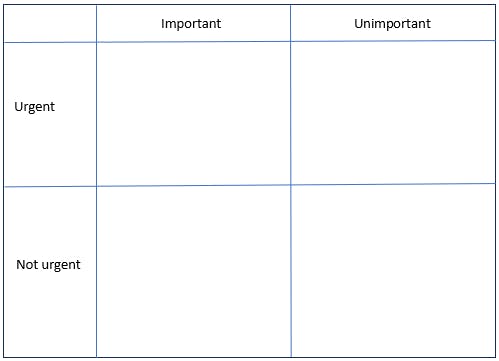Planning and prioritising Time management skills
Planning your time is the first step to effective management. Try to look ahead and plan what to do when.
- Make sure you're very familiar with your module.
- What is required to pass the module?
- When are the assignment cut-off dates?
- What are the learning outcomes?
- How much time do you need to allocate to study?
Lijing and Eulina talk about planning and prioritising
99Lijing:
OU courses are well-designed. And each assignment is designed quite scientifically.Eulina:
You would have what is called a Study Calendar and in that calendar it will outline by dates your assignments, your tutorials, the TV programmes, the audios. When, how and what to watch. You must have this in front of you. You must take a good look at it first of all. And just sketch out and maybe transfer some of that information into your own diary.Lijing:
If you just work through all the requirements in the assignments you will know most of the information and knowledge you are required to learn and to know.Eulina:
Your tutor will also give you some kind of timetable diary. And it's really important just to have a look at that. You may be going abroad to work. You may be off for the summer. So you just need to know when you're going to be around. When things need to be in. So that if you do need to make some special arrangements you can do that.Lijing:
In my first course, I tried to follow the study guides but I found I was behind because I didn't give it enough time then. So I just tried to concentrate on the assignments. And I found it actually worked better because I was learning by doing the assignments. I'm not just reciting the knowledge but I tried to apply the knowledge. And I think it's also what OU courses require students to achieve.
Planning your study time
We all thrive in having a routine so establish a plan for your day particularly if you're working and studying from home, and the months ahead.
- Create a longer term schedule that includes all your commitment relating to study, work, and personal and social life for the next few months.
- Work out how much study time you need to put aside and review this regularly as you go through your studies. Recommended study time is around 100 hours study for each 10 points of a module.
- Do what challenges you most when your concentration is strongest. But be flexible, for example if you get less done in the evenings, try something different, perhaps studying in the morning if it fits in with your work and family commitments.
- Include some exercise or activity during your day to help maintain good physical and mental health, this could be as simple as going for a walk.
- Take regular breaks, perhaps every hour.
- If you live in a two-parent household, discuss how you can share taking care of the children with work and study.
I'm really a morning person, but I might think about doing a bit before dinner though if I'm home at a reasonable time. It's worth studying for half an hour or so at a time - over a week it adds up.
Remember
To set priorities use a four square grid. It helps you to classify everything according to importance and urgency, so you identify and work on the tasks that are important and urgent first.

Use this useful time calculator to identify how you spend your time:
Make life easier
When time is tight, decide what is not going to be done - or will have to be done differently - by remembering the 4Ds:
- Do it
- Dump it
- Delegate it, or
- Do it less well.
